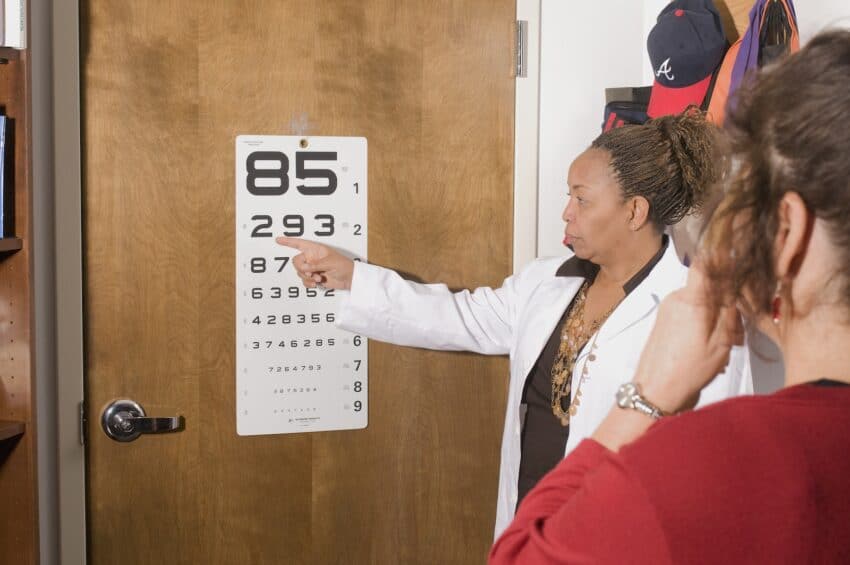Children require good vision to perform well in school; an eye exam is the only way to ensure this. It’s also the best way to watch kids develop myopia or nearsightedness at a young age.
Many people are not aware that a comprehensive eye exam also looks for indicators of health problems like diabetes, high blood pressure, thyroid disease, and more.

Early Detection of Eye Conditions
People tend to think eye exams are only for people with vision problems, but everyone should habitually book them regularly. Children need eye exams to ensure their visual development is on track to support their learning and motor skills. Adults can benefit from a yearly comprehensive eye exam to prevent early signs of diseases like glaucoma or cataracts.
An eye exam can also give your doctor a glimpse into your overall health, with the blood vessels in the retina revealing the state of your blood vessels throughout your body. This is why routine eye exams are essential for people with diabetes or those at risk of diabetes and other conditions such as high cholesterol, high blood pressure, and cancer.
Ensure Your Eyeglasses are Fitting
An improper fit of eyeglasses can cause discomfort and even hinder your vision. Your optometrist can ensure that your glasses fit properly by measuring the width of your frames and ensuring that your pupils are centered within the lenses.
This allows for the most comfortable wear and optimal vision. Your eyesight can change, and your optometrist can help you update your prescription accordingly.
If your eyeglasses are out of alignment, carefully bend the temple end with warm water or steam until it reaches the desired position. Then, rest the frame on a flat surface to let it cool. Then, try wearing your glasses again and evaluating their fit. They should sit comfortably on your nose and not slide down or pinch around your ears.
Check Your Eye Health
When most people think of an eye exam, they picture the basic tests determining how well you can see at various distances. You may read from an eye chart, cover one of your eyes, and have the doctor shine a light to observe how your pupils react.
By studying your retina, your eye doctor can detect serious health issues such as glaucoma, cancer, and high blood pressure. These conditions often don’t have any early warning signs or symptoms, making them hard to spot unless you get regular checkups.
Undetected vision problems can lead to poor school performance and social development, especially in children, as 80% of all learning is done through the eyes. Book an eye exam online today to prevent any potential problems in the future.
Avoid Eye Allergies
Eye allergies can make your eyes red and itchy, causing you to rub your eyes, which may cause corneal scarring. Allergies can also interrupt your tear production, which can cause dry eyes. This is why it’s important to book regular eye exams.
Besides diagnosing vision changes, your eye doctor can notice other diseases by closely examining your eyes. For example, bulging eyes can be a sign of thyroid disease, or fluid leaking from the eyes can indicate diabetic retinopathy.
Whether you suffer from seasonal or perennial allergies, your optometrist can help relieve your symptoms with medication. They can also teach you at-home strategies to reduce your allergy symptoms. This way, you can keep enjoying your life to the fullest. Rather than putting off an eye exam, consider booking one sooner rather than later to avoid severe complications like cataracts or macular degeneration.
Check Your Vision
As we get older, our eyesight naturally changes. For most adults, it is recommended to book eye exams every two years. However, securing an eye exam sooner than later is a good idea if you have been experiencing symptoms like blurry vision, eye strain, halos around lights, or floaters.
Many vision problems, including glaucoma and diabetic retinopathy, don’t have symptoms until they are advanced. By booking regular eye exams, you can ensure your vision is still healthy; if it isn’t, your optometrist can help.
Aside from evaluating your eye health, a comprehensive eye exam also allows the doctor to check the blood vessels in your retina, which can often indicate other unrelated conditions such as diabetes, high cholesterol, and high blood pressure.
